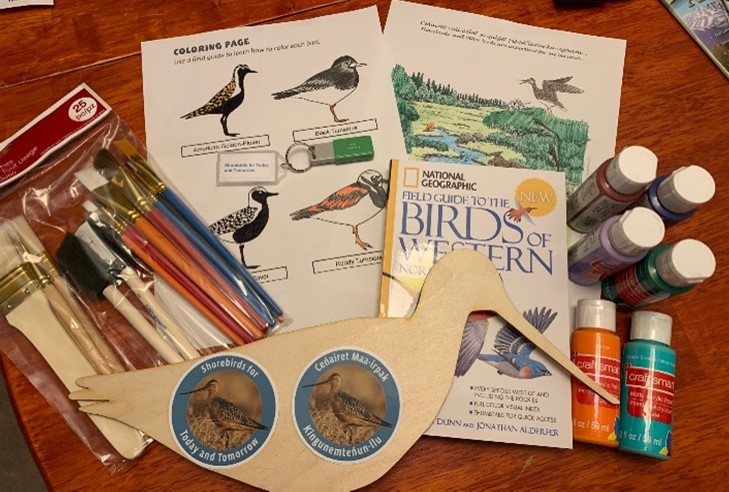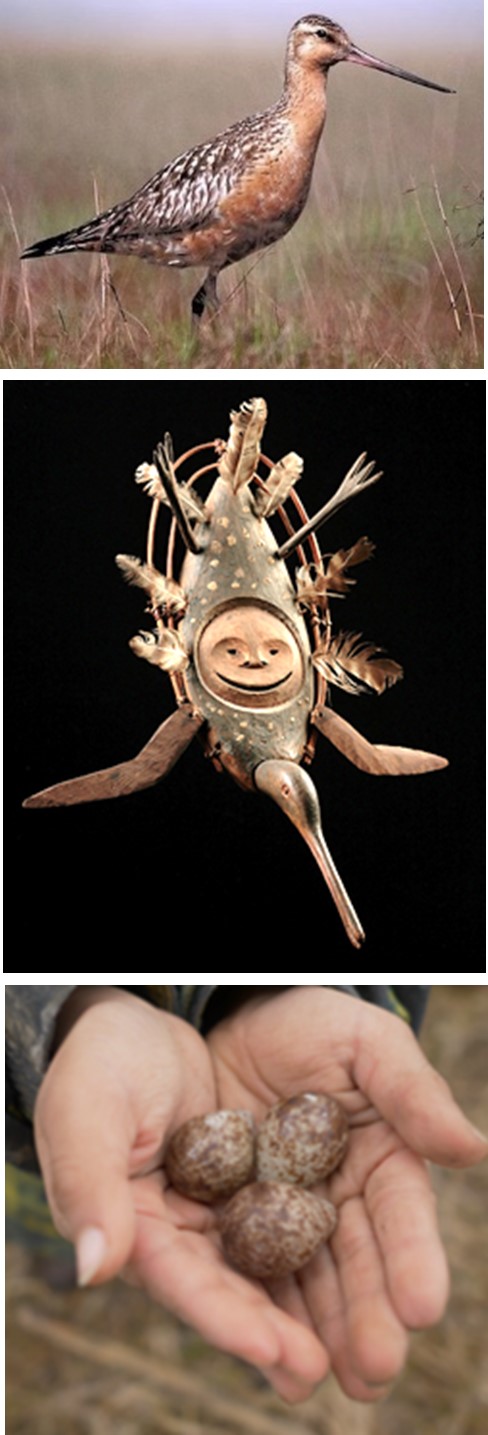Alaska Migratory Bird Co-Management Council
Harvest Assessment Program (AMBCC-HAP)

Why Shorebird Outreach
 In a recent study on subsistence harvest and Indigenous knowledge about shorebirds, we found that members of subsistence communities in the Yukon-Kuskokwim Delta have seen fewer shorebirds in their regions. Older generations were more familiar with birds and their Yup’ik names. People in these communities are interested in learning more about shorebirds and where they migrate. Thus, we developed a youth education program about shorebirds. We would like to invite local educators to collaborate and use a suite of educational materials and activities about shorebirds based on the Yup’ik culture and the environments of the Yukon-Kuskokwim Delta.
In a recent study on subsistence harvest and Indigenous knowledge about shorebirds, we found that members of subsistence communities in the Yukon-Kuskokwim Delta have seen fewer shorebirds in their regions. Older generations were more familiar with birds and their Yup’ik names. People in these communities are interested in learning more about shorebirds and where they migrate. Thus, we developed a youth education program about shorebirds. We would like to invite local educators to collaborate and use a suite of educational materials and activities about shorebirds based on the Yup’ik culture and the environments of the Yukon-Kuskokwim Delta.
Shorebirds breed in large numbers in the Delta, then migrate around the world during the winter. Their numbers are declining due to many factors, especially habitat loss in wintering areas. Birds are subsistence food and cultural resources, and thus Native peoples are important partners in bird conservation.
Shorebirds are an exciting educational theme! They connect the past with the future and create context for lessons on habitat, migration (geography and reading), populations (math), bird identification (dichotomous keys), animal adaptations, and socio-emotional skills that help students relate with other places, people, and cultures along the migration routes of shorebirds. This pamphlet, available in Yup’ik and English, is an example of diverse materials and activities that educators can use with students.
Sign Up and Request Educators’ Materials
 The program is geared toward two age groups (grades 4−8 and 9–12) and is aligned with the latest curriculum standards. Resources are available online and as hard copies for educators and students. A first cycle of classroom activities is happening from January to June 2022.
The program is geared toward two age groups (grades 4−8 and 9–12) and is aligned with the latest curriculum standards. Resources are available online and as hard copies for educators and students. A first cycle of classroom activities is happening from January to June 2022.
- Educator’s workshop: project staff meet online with educators to share materials and activities. For more information and to sign up for the program, please contact Lili Naves (liliana.naves@alaska.gov, phone 907-267-2302).
- Educator’s package: interested educators sign up and request the classroom materials. Materials are also available online.
- Pre-program assessment: before the classroom activities, educators and students take a short and fun online survey to gauge current knowledge, help finetune the program, and assess its outcomes.
- Classroom activities: Educators can choose from diverse materials and activities and adapt them to best meet local educational needs and goals. Materials include pamphlets in Yup’ik and English, stickers, lesson slides, short documentary films, bird calls, and coloring sheets, all with a strong emphasis on Yup’ik language and culture. Project staff is available to assist as needed.
- Post-program assessment: at the end of the semester, educators and students take a short online survey to see if and how learning has changed and to advise on how to improve the program.
